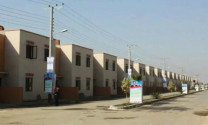Online learning in Pakistan
It is high time our institutions engage, encourage their best teachers to create content in Urdu, regional languages.

Online learning in Pakistan
The Khan Academy is not the only venture of free, online and accessible learning for the masses. Another endeavour, called EdX, includes premier higher learning institutions like MIT, Harvard, Berkeley and UT Austin. This initiative offers university courses, taught for free by faculty for anyone who wants to take the course. Whether it is introduction to circuit theory or a complex topic in finance, anyone can be a part of the experience. Enrolment in these courses often tops over a 100,000 students. These and other similar efforts have started to reshape the landscape of higher education as we know it. A course offered in Cambridge, Massachusetts, can now be taken by anyone in China, Chile, Cameroon and Cambodia simultaneously. How this may reshape the existing models of higher education, both in the developed and in the developing world, is a discussion for another time. Right now, I am interested in analysing what this may mean for Pakistan, both in terms of benefitting from it and also in learning from these endeavours.
First, Pakistani students and non-students, academics and non-academics, can all benefit from quality, free and accessible education. The Khan Academy provides easy-to-understand tutorials on topics of fundamental and applied knowledge in a variety of areas. Conspiracy theorists and water-car supporters can all benefit from some general understanding of thermodynamics. Same can be said about students who may wish to take a course offered by EdX. Yet, there is also a catch. It is important to realise that online learning can certainly complement but not substitute higher education in Pakistan. The instructors may not realise the training of our students; there are language barriers and certainly, most courses do not incorporate the local cultural, environmental and social context. This may not be relevant in theoretical physics but advanced topics in a variety of disciplines, including public health, agricultural sciences, economics and certainly, policy and humanities need to keep context in mind. The tendency to jump on the online learning bandwagon without analysis of the content of the course would be counterproductive to say the least and can be disastrous for our already struggling higher education sector.
In addition to benefiting from the content of these courses, there is also a lesson and a tremendous opportunity. We cannot deny that we have an education crisis in the country. Our universities are overcrowded, yet a large portion of society has no access to quality education. But we also have entrepreneurs, innovators and certainly, a fair share of scientists and engineers who believe in a better Pakistan. I believe that there is a tremendous opportunity for our institutions to think outside the box and create opportunities for access. I believe that it is high time that our institutions can engage and encourage their best professors, with the help of entrepreneurs, mobile phone companies and field experts to create content in Urdu, English and regional languages, aimed at general and field-specific education at all levels, including higher education. Many universities have a national outreach programme but let’s not just focus on bringing the students to the universities, where we have little room and only a select few make it; let us also take the university to them.
We have to recognise both the importance of education and the educational crisis we are currently facing. Denying either would not help our cause, as it has not helped in the last 65 years.
Published in The Express Tribune, November 17th, 2012.


















COMMENTS
Comments are moderated and generally will be posted if they are on-topic and not abusive.
For more information, please see our Comments FAQ